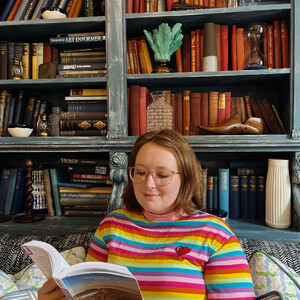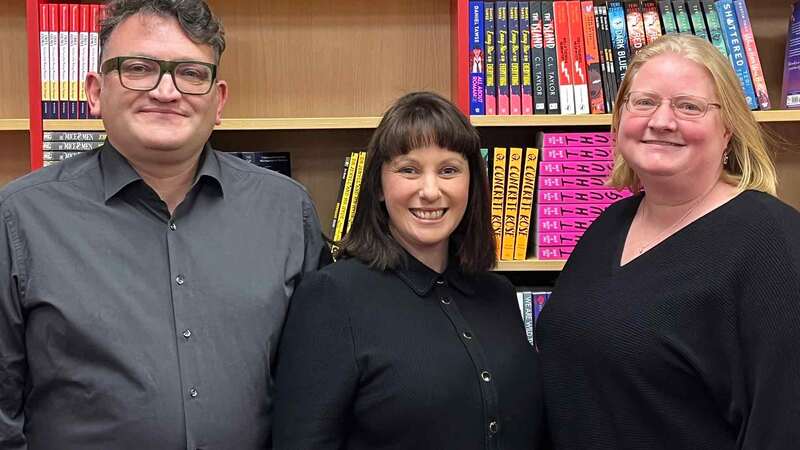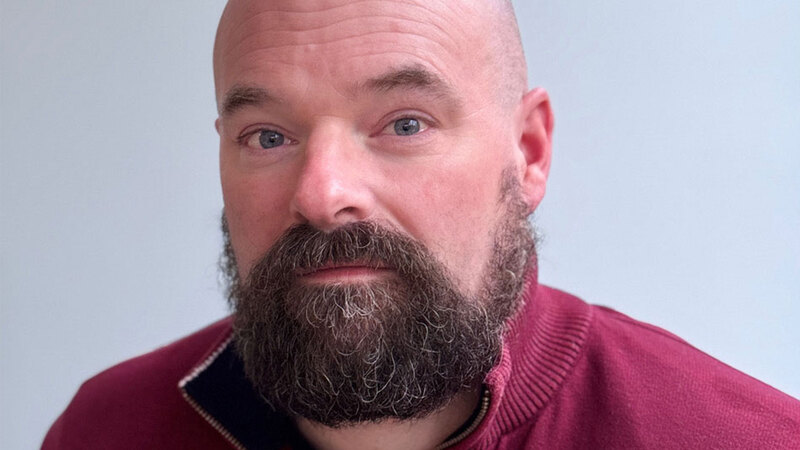You are viewing your 1 free article this month. Login to read more articles.
Safe start
Support is available for people launching a publishing career without a financial leg up.
I started out in book publishing for the same reasons that many young people do – I was seeking an exciting, creative career where I could follow my passions and spend every day working with books. After five brilliant years, I made the difficult decision to leave the industry, mostly because I just wasn’t earning enough money to build a life for myself that was sustainable. Living from pay check to pay check is manageable for a few years, but I didn’t want to live my whole life that way.
I know that I’m far from the only person who has found it difficult to get by on a publishing salary, but it’s particularly difficult for those without the additional support of generational wealth.
Something that surprised me when I started out in publishing was how different my upbringing was to that of my peers. Lots of my contemporaries had been to private schools, had university educated parents, and family holiday homes in the countryside. Some of them even said "ghastly" out loud, in real sentences, which was something that I’d never heard before. This isn’t me complaining – I’m happy to stand on my own two feet and make my own money, but it just doesn’t work in publishing when the salaries are so low. If I were to stay in the book publishing industry long term, my future was simple: I would never own my own home, never have the money to travel abroad and explore the world, and I would continue to struggle to make ends meet. It just didn’t make sense.
In fact, when I first started out, I frequently found myself in situations that put me at risk, just because I couldn’t afford to do things safely. This is certainly the case when I found myself living in a large house share in east London, during my first year working in the industry. This house was situated in an estate with notoriously high crime levels, and I didn’t even have a lock on my bedroom door to keep me safe at night. I remember it being a particularly chaotic time with at least five housemates (I was never actually able to ascertain how many people lived in the house), one tiny kitten called Rambo who lived in the attic and an unruly husky puppy called Khalisi. At one point, one these housemates was attacked after mysteriously disappearing on a night out, and I woke up to find a paramedic in my bathroom!
Jinhao Xie, sales assistant at Hachette, has faced similar difficulties while starting out in publishing, despite finding their employer to be welcoming. "As a new starter, I really wanted to fit into the literary world, so I spent a chunk of my money each month on attending events." Due to the cost of living "I had to leave London and move in with my partner, and now I’m commuting between London and Kent. I have worked out that I have about £10 to spare each day".
When I first started out, I frequently found myself in situations that put me at risk, just because I couldn’t afford to do things safely
Publishing will not be able to diversity itself as a profession until its employees are paid fairly, because those who are not from wealth and privilege will simply not be able to stay. While this is not a long term answer, I also implore those who are new to the industry to make the most of the support that is available from organisations such as The Book Trade Charity, who exist to provide grants and housing to those who need it the most:
"When someone needs our help we turn their grant application around in days, not weeks. Putting food on tables, heating homes and keeping the lights on for hundreds of colleagues each year. But we don’t stop there. We actively drive positive change across the trade by supporting people to grow and develop. We have helped hundreds of colleagues to enter the industry, relocate for the job of their dreams and hundreds more gain the skills they need to go further and to realise their potential.
"Our subsidised homes at Bookbinders Cottages, N20, help young entrants to the trade by providing an affordable place to live, breaking down a financial barrier at a crucial time."
They’re not the only ones who can offer assistance to entry level publishing professionals. The Spare Room Project matches publishing interns with professionals who have a room to spare, giving them a place to rest their head while gaining experience in the industry. Similarly, the London Hostel Association (LHA) is a registered charity that offers secure and affordable accommodation to young professionals, meaning that no publishing assistant should have to live in a room without a lock on their door.
If you, like me, are starting out in publishing on a very limited budget, don’t be afraid to reach out.


















